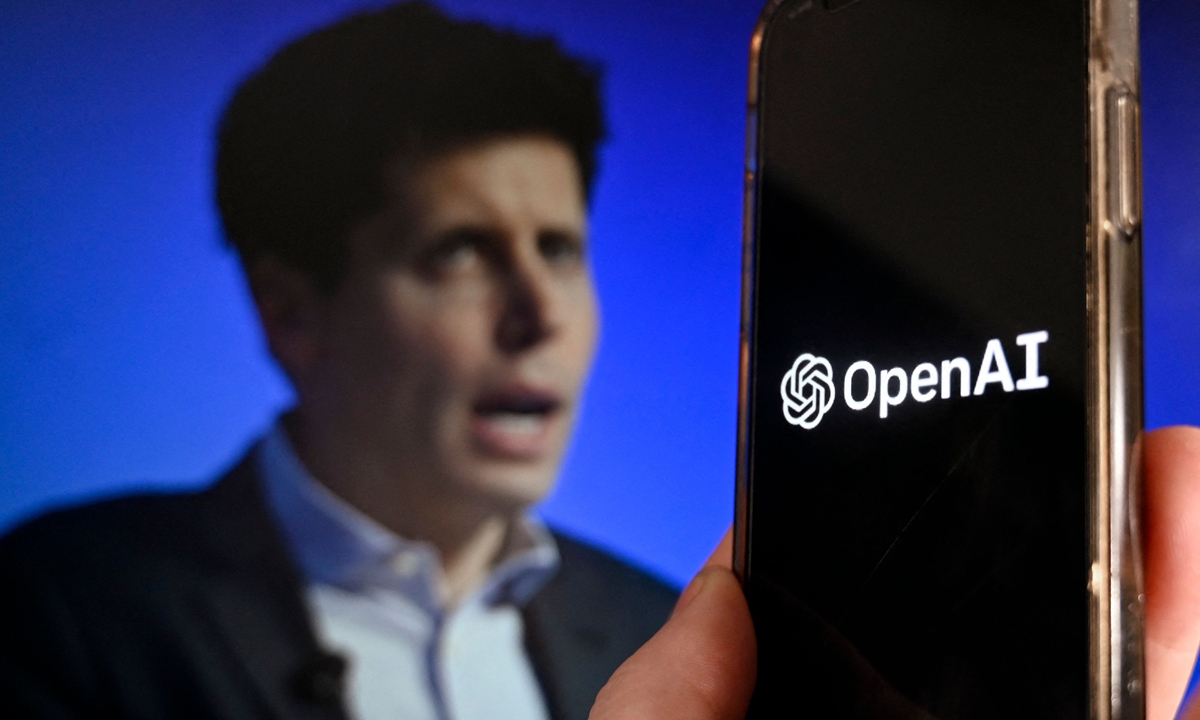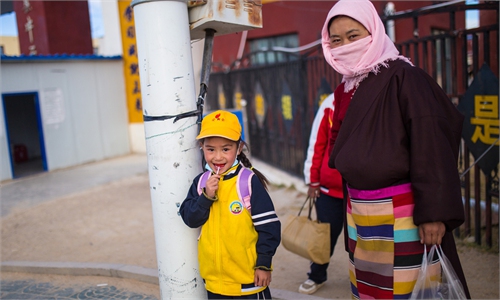
Photo: VCG
Within days, Sam Altman, who had been ousted from OpenAI's board, will be back in charge of the company. "Even Netflix couldn't write this," some Chinese netizens joked, having let their imaginations run wild while watching the internal power struggle.
"Just 30 minutes into my work out, I saw the news that Sam Altman is back as CEO of OpenAI. Presumably, the company can't stand the pressure of employees quitting, and it is really rare for a CEO to do so," Sina Weibo user "Zilingzaitinge" wrote after the start-up announced on Wednesday Altman would resume his duties as CEO.
Significant pressure was seen from employees and investors on the board who had previously removed him from the position. Some netizens said that Altman is the embodiment of ChatGPT, and his words and deeds, points and experiences may affect the evolution of AI for many years.
As his team put it: "We, the employees of OpenAI, have developed the best models and pushed the field to new frontiers." Previously more than 730 employees signed a letter demanding that the board dissolve and bring Altman back, or they too will resign.
The topic of the internal power fight within OpenAI has swept across Chinese social media, with some writing on Sina Weibo that "OpenAI has done in a few days what other companies took decades to do," while others joked that "Even Netflix couldn't write this, or maybe David Fincher is making another movie with Jesse Eisenberg in the lead."
"An individual traversed time and space to orchestrate this gathering, dismiss Sam, thwart the assault on the crucial ChatGPT version, and buy humanity precious time to retaliate," one Chinese netizen posted, allowing their imagination to run amuck, reflecting people's concerns that the abuse of AI may one day threaten humanity.
Although many specifics regarding the reasons for Altman's dismissal from the OpenAI board are still unclear, indications suggest that co-founder Ilya Sutskever took the lead in the firing process, media reports said.
Altman was a prominent figure in the company's business division, actively seeking ways to secure funds, broaden OpenAI's business prospects, and accelerate the advancement of its technology. On the other hand, Sutskever is responsible for leading the engineering department and has a deep preoccupation with the future consequences of OpenAI's generative AI technology. He frequently discusses the potential impact of AI reaching its full potential, expressing concerns about widespread unemployment due to the immense power of this technology.
No wonder that as large models continue to enter various fields in the form of production tools, OpenAI has also entered a critical point of divergence: Should it continue to adhere to the Utopian route of technological supremacy and pursue the most extreme directions, or should it lay out an ecology and explore commercialization, said some industry observers reached by the Global Times.
Some viewed the return of Altman as a victory for commercialization, pessimistically stating that if AI does one day threaten humanity, what happened this week will be an important moment in history. A few humans tried to stop AI from advancing too fast, but they were powerless in the face of capitalists.
Not simply seeing it as a conflict between radical and conservative approaches in terms of AI's future development, Li Zonghui, vice president of the Institute of Cyber and Artificial Intelligence Rule of Law affiliated with the Nanjing University of Aeronautics and Astronautics, said that the differences are not that significant.
"Even if we prioritize safety and ethics, research and development objectively requires a significant amount of funding," Li told the Global Times, adding the future of AI is still swinging in the balance of profit and safety, so no one dares to stamp a final verdict because everything is full of unknowns.
The reason why China did not spark a controversy over risk prevention and accelerated development is because the Chinese government reacted quickly in AI governance with several regulations already issued while AI companies rushed to explore the possibilities of AI, Zhu Rongsheng, an assistant researcher at the Center for Strategic and Security Studies, Tsinghua University, shared his insight with the Global Times.
Industry observers said the OpenAI drama reflects the different environment for AI development in the US and China. Li mentioned that in China, AI-related research is pioneered by capital investment and is not something that can be done by an NGO. Zhu said the drama reflects the concentration of AI powerhouses in the US, while in China, because of the huge amount of companies involved in AI industry, they are in a more neck and neck relationship.


